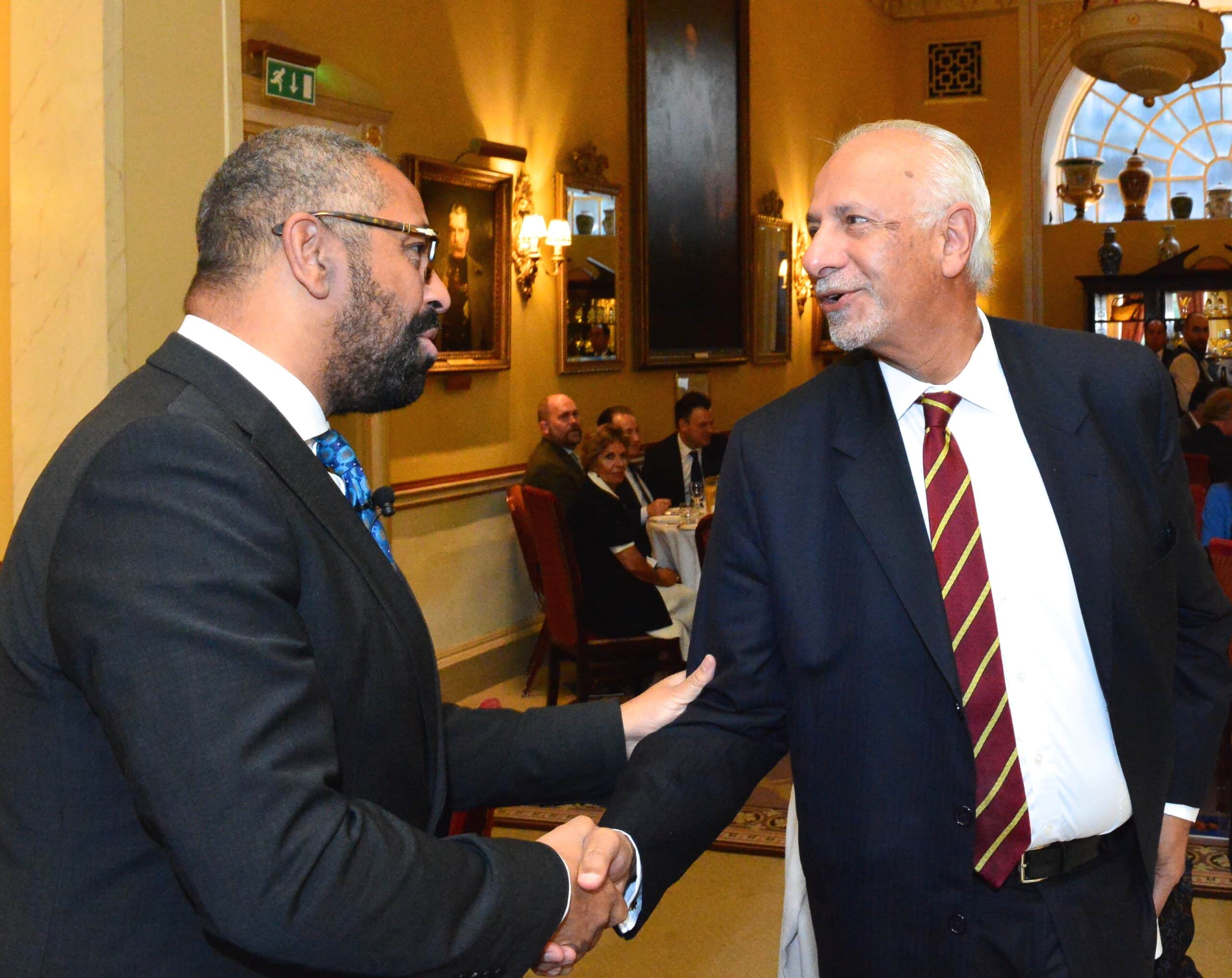 BBC News
BBC NewsBorrowing was £17.4bn last month, the second highest October figure since monthly records began in 1993.

Dinesh Dhamija
I’ve just had the pleasure of meeting the Foreign Secretary James Cleverly, when he generously made time to attend a breakfast with me and a few dozen friends and colleagues, to celebrate the impending publication of my book The Indian Century. He is a very personable man: he laughs easily – often at himself – and has a winning combination of seriousness and relaxed friendliness that few politicians manage. He also combines a background as a British man of mixed heritage (his father is English, his mother comes from Sierra Leone), a military career, experience as a business owner and in local government. Even more unusually, he survived being appointed as Foreign Secretary by Liz Truss and remains in that role today.
The question of whether we can achieve a trade deal with India is of course on the top of people’s minds. Does Cleverly think it’s achievable?
“We have been making fantastic ground,” he said. “The EU, for example, have been trying to negotiate a trade deal with India since 2007. I believe we’ve made more progress since our departure from the European Union than I think a lot of our critics would have expected.”
Admitting that negotiations are likely to last some time further, he is quick to put any policy disagreements into context. “In various ways we have disagreements on policy issues with all our international partners. When I go over to Washington, part of the conversation I have with the US is where we have disagreements on their policy positions.”
Cleverly is a consensus politician, skilled at listening to what the other side has to say and looking to reach common ground, rather than trying to bulldoze arguments through. Asked whether Britain should be talking to China, when its people are accused of spying, he replies that it’s important to keep diplomatic channels open, and to look for reasonable people with whom to negotiate.
Equally, from Britain’s self-interest, it is crucially important to develop closer relationships with countries such as India that will be increasingly influential in the future. We should not rely on “the comfort blanket of our nearest neighbours,” says Cleverly.
The potential rewards of a trade deal between Britain and India, which include an estimated 300,000 new jobs in the UK and as many as a million in India, are among the benefits that he sees from this new focus on trade outside the European Union. Although I am a confirmed Europhile and opposed Brexit, I would love to see these advantages realised, especially relating to India.
If Indian politicians – and indeed its public – are reluctant to agree to a trade deal with Britain on account of historic grievances, it would be good for them to see more images of James Cleverly and Rishi Sunak together: one of Indian heritage and the other with African roots.
Whatever Home Secretary Suella Braverman might spout about the failure of multiculturalism, the optics of Sunak and Cleverly as the main negotiating force for Britain in the world are a powerful reminder of progress.
Dinesh Dhamija founded, built and sold online travel agency ebookers, before serving as a Member of the European Parliament. His latest book, The Indian Century, will be published in the Autumn.